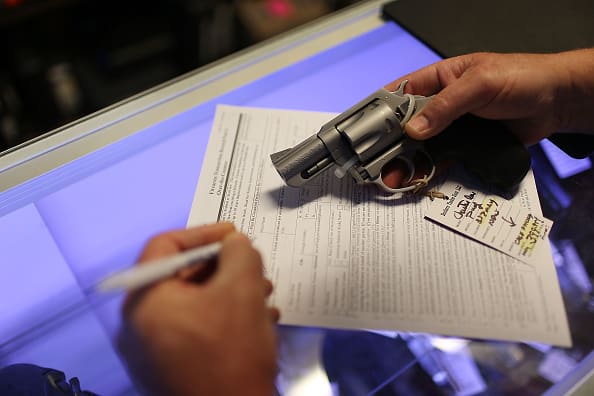Here’s a novel concept: enumerated civil rights apply equally in every state in the union. Can speech be more stringently regulated in Maryland than it can in Montana? Do police have broader search and seizure latitude in Arkansas than they do in Alaska? Why no, no they don’t. And that means that . . . States have a constitutional duty to recognize gun rights nationwide.
In response to the House of Representatives passing the Concealed Carry Reciprocity Act of 2017 (which would essentially require states to recognize concealed carry permits issued by other states) this month, those who oppose gun rights are invoking states’ rights — an argument conservatives favor in other contexts. But a federalism argument cannot stand where Congress is exercising authority that has been explicitly granted by the Constitution’s Fourteenth Amendment.
The Fourteenth Amendment (along with the Thirteenth and Fifteenth) is one of the Reconstruction Amendments, passed in the immediate wake of the Civil War. It (was) intended to redesign American federalism by requiring the states to respect basic rights of their citizens, including “the personal rights guaranteed and secured by the first eight amendments to the Constitution.”
Isn’t the Second Amendment one of those first eight Amendments in the Bill of Rights? Why yes, yet it is. But wait…aren’t gun rights somehow different?
The question then is: are gun rights protected by the Fourteenth Amendment? During the debates on the Amendment, and the related Civil Rights Act of 1866 and Second Freedman’s Bureau Act, the right to keep and bear arms was explicitly invoked frequently as one of the elementary civil rights and rights of citizenship that Freedmen, who were regularly and violently disarmed, were entitled to enjoy along with whites. The Supreme Court recognized this and more in 2010, in the case of McDonald v. City of Chicago. In that case, the Court unambiguously held that the Second Amendment is a “fundamental right” that “is fully applicable to the States.”
Huh. A precedent like that could be downright inconvenient for the forces of civilian disarmament if a national concealed carry reciprocity law ever comes before the Supreme Court.
To be sure, there are other considerations that should be part of the reciprocity discussion. For example, moving between and among the several states is a fundamental right upon whose exercise the states may not place a substantial burden. Nor can states discriminate against new residents by treating them differently in matters of importance, like medical care and welfare benefits. This has implications for American gun owners. If a state may not chill the freedom of interstate travel by placing restrictive conditions on certain benefits, it is reasonable to conclude that stripping one’s carry rights in order to cross state lines would also be impermissible under the Fourteenth Amendment.
So while we’re not constitutional law experts, national reciprocity would seem to be on good legal footing should the bill that’s currently in the Senate ever be signed into law, and challenged in the courts. Which you have to expect it would be.
The question now is, what are the chances of a bill reaching President Trump’s desk?
